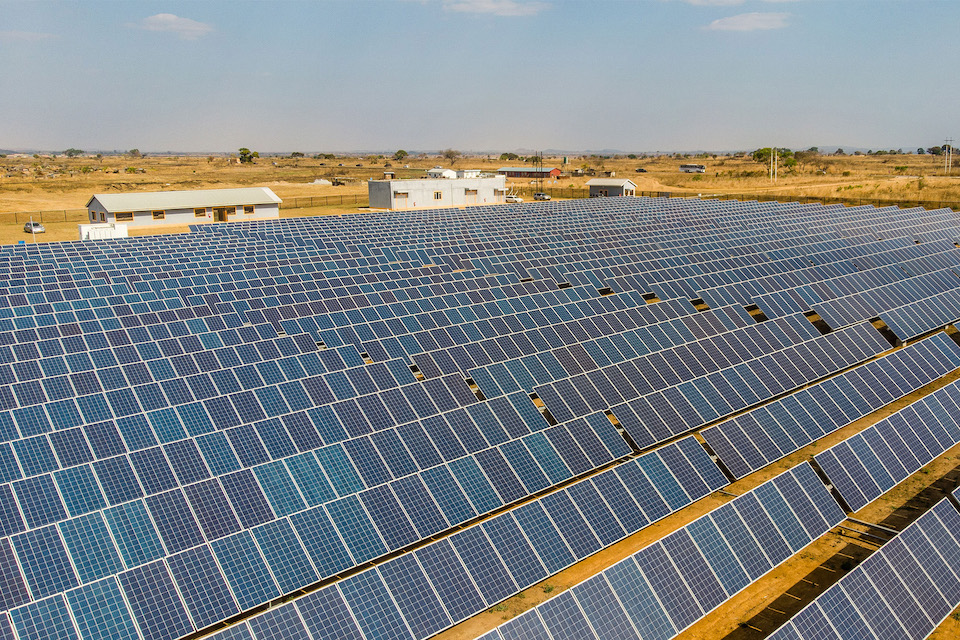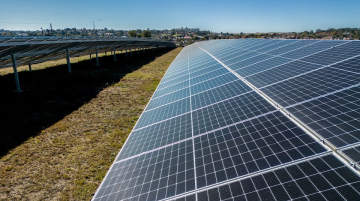
Sanctioned and isolated by the West, Zimbabwe’s economy has taken a beating for more than two decades, but in that period, some Chinese companies have stuck it out and become favorites, winning contracts for big-ticket projects.
Chinese state-owned Sinohydro Company, one of China’s largest construction conglomerates that’s very active in Africa, is one such company. It has won the trust of Victor Utedzi, founder of the solar farm Centragrid which was designed and built by Sinohydro.
“We’ve known them close to maybe about 20 years. Their work is evident from government projects like the Kariba Dam hydropower project which was commissioned in 2018, and the 920MW Hwange coal power station,” Utedzi says.
Utedzi settled on Sinohydro for Centragrid because the Chinese company successfully handled $2 billion of other public sector projects in Zimbabwe.
For projects like Centragrid, Utedzi noted that the role of Chinese companies in helping Zimbabwe increase electricity generation is “very important”. This is because there is little European and American involvement after they put Zimbabwe under sanctions.
A Decade of Concerted Energy Generation Efforts for Zimbabwe
Located in Nyabira, a small town 30 kilometers outside of the capital Harare, Centragrid is currently generating 2MW and plans to scale up to 25MW output by October this year.

Zimbabwe’s limited power generation, coupled with the shift to renewable energy, has challenged the ability to meet the rising electricity demand that has seen private sector players like Utedzi dive in to plug the widening gap.
Utedzi said that it will take at least a decade of a concerted effort for Zimbabwe to be able to achieve an additional 1,000- 1,500 megawatts (MW) of electricity generation, enough to power at least a million households. For context, Zimbabwe is currently generating 1,400 MW of electricity against a demand of 1,700MW. The Zimbabwe Electricity Supply Authority (ZESA) aims to double power this output by 2025 but a lack of investment in new energy projects which are expected to add an extra 1,100 MW from solar has slowed progress.
An initiative for mining companies allowing them to import power has also been sluggish due to a lack of foreign currency. Miners complain that the incessant power blackouts are losing them up to 12 hours of production time daily. Last year the mining sector generated Zimbabwe 80% of its total export earnings from gold, copper, platinum metals and diamonds.
Utedzi noted that even though some Chinese companies in Zimbabwe are now considering investments in the country’s electricity sector, their focus is more on powering their own initiatives rather than feeding the public grid. So, the challenge now for policymakers is how to increase the overall supply of electricity for the country rather than for specific stakeholders or industries.
Inflation, Investments And Zimbabwe’s Energy Independence
For Zimbabwe to achieve energy independence, it has to aggressively invest in various energy generation options bearing in mind that each source has its merits and demerits, noted Tawanda Collins Muzamwese, a safety, health and environmental and quality (SHEQ) management systems consultant in Zimbabwe.
Tawanda added that Zimbabwe should focus on a blended strategy for energy generation since no single source is sufficient to sustain the country and due to the long-term nature of energy projects and their high capital outlay, there is a need to bring development finance institutions into the sector.
“Climate finance offers exciting prospects as well to enable a transition to a circular economy,” he noted.
In agreement with Tawanda’s observations, Utedzi said that Zimbabwe has to make the energy sector attractive to investors because inflation hits their investments since ZESA buys power from private companies in local currency. Zimbabwe has one of the highest inflation rates in the world and the enormity of the currency challenge is evident in the more than 200 companies licensed to generate electricity in Zimbabwe but most of them have failed to take off.
Unless these challenges are addressed, Utedzi said that Zimbabwe will continue to suffer from the inadequate power supply.










